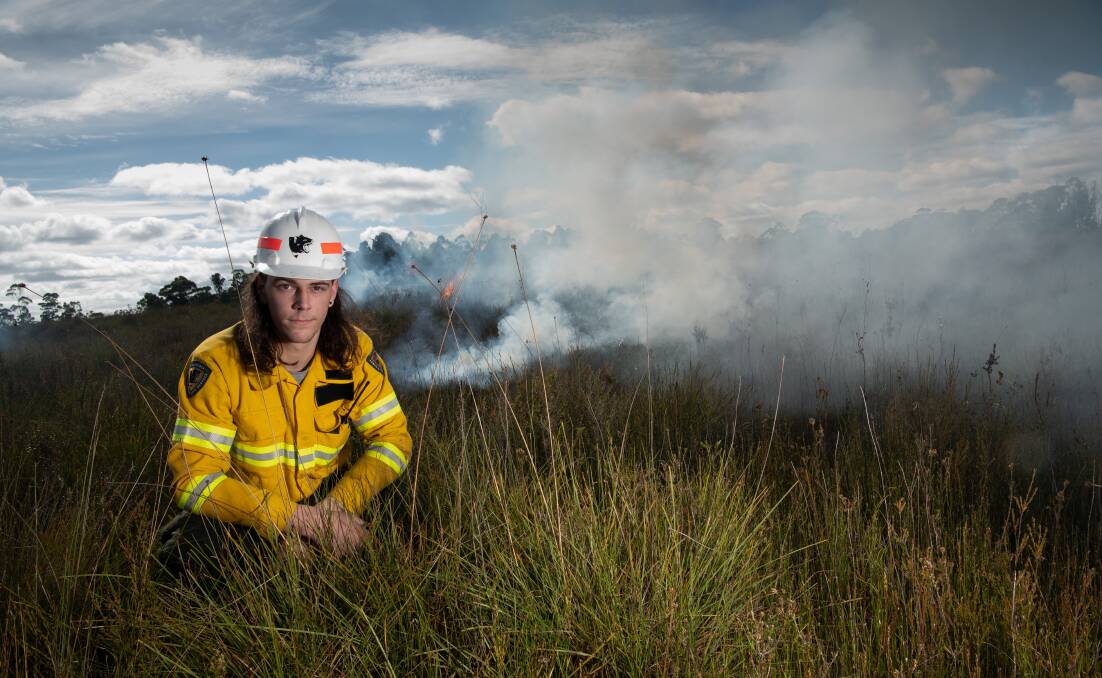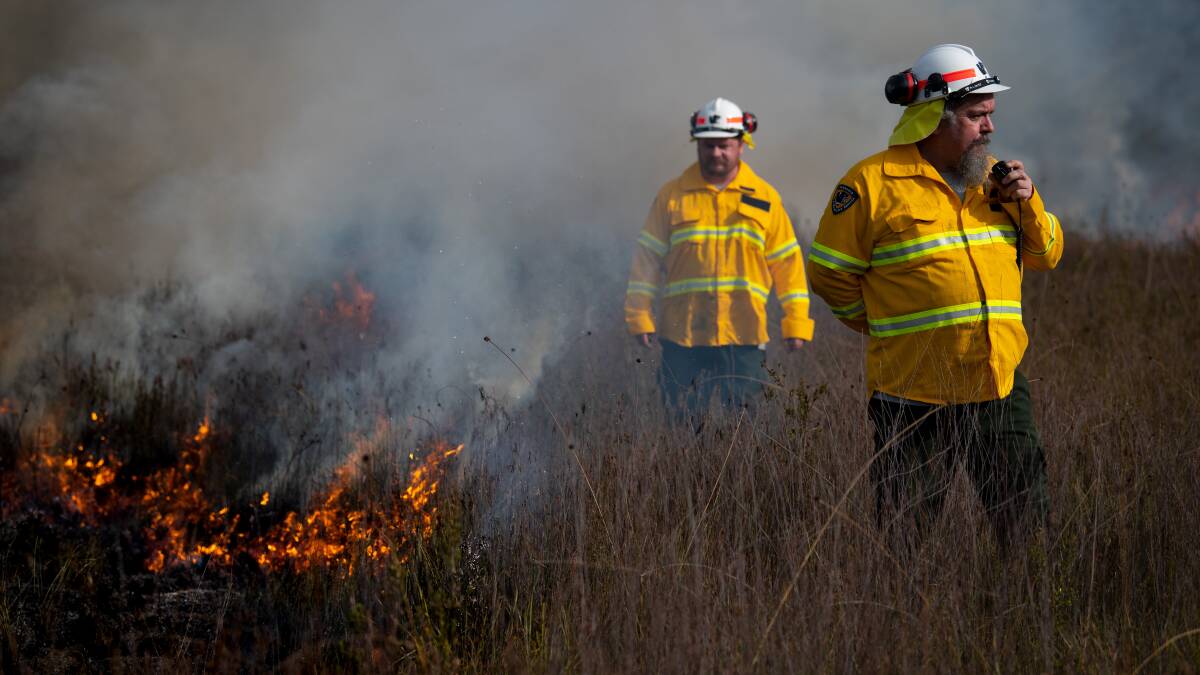
Newly-appointed Tasmanian Parks and Wildlife Service Aboriginal Fire Rangers completed their first cultural burn last month
Subscribe now for unlimited access.
$0/
(min cost $0)
or signup to continue reading
The specialist rangers undertook the burn at Dempster Plains on the West Coast under the guidance of an Aboriginal burning project officer.
University of Tasmania Professor of Pyrogeography and Fire Science David Bowman has studied the effects of Aboriginal fire usage and the consequences of the practice's disruption following European settlement.
"Cultural burning is landscape management with fire based on Aboriginal traditional ecological knowledge and practices," he said.
"One of the things that was really important before European conquest was the use of fire to create productive habitats, particularly managing landscapes to increase biodiversity.
"The technical word is pyrodiversity and it's using fine-scale burning to increase biodiversity."
Tasmanian Aboriginal Centre land management coordinator Andry Sculthorpe said while the TAC was pleased to see a return of cultural burning to Tasmania, the practice should have remained within the community.

"I'm not as enthusiastic about it as some others might be," he said
"It's a community, cultural building project that's been taken over by the public service.
"It's not supporting community ownership in the rebuilding of culture.
"So while it's great to have cultural burning back, it's not respecting the Aboriginal community's self-determination principles.
"Cultural burning needs to be put back in the landscape but it needs to be done by the Tasmanian Aboriginal community and not Parks and Wildlife."
Cultural burning project officer Jason Williams said engaging with the wider Tasmanian Aboriginal community had been his biggest focus within his new role.
"This is not for Parks staff, it's for the community," he said.
"Ultimately we want the community to come on to parks managed land or Crown land and conduct their own burning as an organisation.
"It's not going to happen overnight but that's where we want to head."
A government spokesperson said the ongoing development of the cultural burning program would be a collaborative effort.
"This is a journey we need to go on together - the Government, the broader Tasmanian community, and Tasmanian Aboriginal people - to rediscover how cultural burning can re-connect Tasmanian Aboriginal people to country, and involve them in land management and decision-making while supporting fuel reduction," the spokesperson said.
"There is no doubt much of the wider Tasmanian community can learn from Tasmanian Aboriginal people.
"We now also have Aboriginal representation on the Statewide Fuel Reduction Steering Committee through Rodney Dillon, the Chair of the Aboriginal Heritage Council.
"In addition, we have employed three Aboriginal cultural burning specialists, and are developing a Cultural Burning Policy for Tasmania, with targeted discussions with Aboriginal fire practitioners and Tasmanian Aboriginal people informing a draft for consultation.
"Over the next few months, the Government will undertake further extensive engagement and consultation with Tasmanian Aboriginal people.
"These discussions will inform and guide how the Policy will be further developed and implemented.
Input by, and shared understandings with Tasmanian Aboriginal people, will be integral to the success of the Policy."
What do you think? Send us a letter to the editor:


